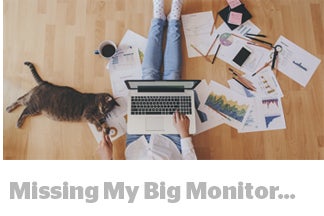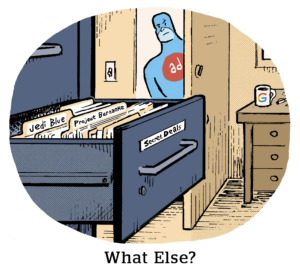 Agencies, used to face-to-face meetings, are grappling to pivot to a remote workforce in light of the COVID-19 pandemic.
Agencies, used to face-to-face meetings, are grappling to pivot to a remote workforce in light of the COVID-19 pandemic.
Navigating client uncertainties, making urgent changes to in-market campaigns and pausing long-term projects to make room for pressing work are top concerns as agencies adjust to work-from-home life.
Here’s how a handful of large digital and media agencies are coping.
WFH setup
Agencies have been inching toward remote work for the past couple of years, allowing their employees to take one day from home and setting up tools and processes to make remote work effective.
Most have their video conferencing software of choice, whether that be Zoom, WebEx or Hangouts. They’re already using collaborative software like Microsoft Teams and G Suite. And pretty much everyone and their mother is familiar with Slack.
“We had been preparing this for several months,” said Sharon Cullen, director of integrated investment at Hearts & Science. “Everybody has Wi-Fi in their house and a laptop.”
Programmatic traders can log into DSP and DMP portals virtually, allowing trading to go on undisrupted during the migration, said Merkle Chief Data and Product Officer John Lee.
“Anyone can log into the Adobe DMP, the DV 360 DSP feed or whatever it is that they’re doing from anywhere,” he said.
But keeping productivity high during a time of mass disruption is critical. Holding companies are helping out by collating best practices across agencies, creating work-from-home guides and giving employees easy access to the collaboration software that their clients prefer.
Agencies are encouraging teams to do video chats whenever possible. Keeping the webcam on, as well as implementing daily activity trackers, helps from both a social and an accountability standpoint, said Mario Schiappacasse, head of programmatic at Jellyfish.
“You want to see people are engaged and learning,” he said.
Agencies are overcommunicating as people get settled into the new normal. Most are having daily check-ins with executive leadership, HR, discipline leads and team members to ensure everyone is adapting to the change and remaining productive.
“We made it very clear we can’t miss a beat,” Cullen said. “We can’t drop the ball.”
Interfacing with clients
While agencies often work with clients virtually, economic uncertainty and rapid campaign changes make constant communication a must.
“We’re talking multiple times a day because things are changing that quickly,” Cullen said.
Today, most conversations revolve around market changes, shifting media consumption habits and how brands can be mindful and appropriate in their messaging.
But for many clients, insights and strategies change daily, so guidance varies by client and evolves day to day. A CPG or food company is dealing with a very different reality than a travel or retail brand right now.
“Now we’re dealing with the hard part: what we and our clients are going to be facing in the weeks ahead,” said John Swift, chief operating officer of Omnicom Media Group.
Heightened and disrupted workloads
Clients are urgently swapping out messaging that now seems insensitive, putting pressure on agencies to move fast.
One agency client changed their creative three times in the last day. Other clients are trying to quickly figure out how to use their brands and assets to help people suffering from the crisis.
“It’s not even the normal 12-hour day,” Cullen said. “It’s a 14-hour day. Everyone is being hyper-responsive because we understand what the stakes are.”
So business as usual has slowed down. Long-term projects, like product updates, new solutions that solve for a cookieless web or software migrations, are no longer the priority, as everyone does extra work around more immediate campaigns.
“No one’s stopping the project, but no one’s going to make these big decisions right now,” Schiappacasse said.
But long-term initiatives aren’t being tabled permanently – yet.
“We are experiencing a lot of disruption in moving things forward because everyone is in scramble mode,” Lee said. “But I haven’t heard anyone say, ‘Call us in six months, we’re not interested in moving this forward.’”
For some teams, work is slowing down as clients put off non-urgent decisions. That gives agencies an opportunity to focus on internal initiatives, thought leadership and product work that often get pushed to the side.
“They have more time to mind our nuts and bolts, which is actually a really good thing,” Lee said.
As priorities shift, leadership teams are taking extra care to make sure employees aren’t overworked without their normal routines in place.
“You have to fight the urge to wake up at 6am and just log on and start thinking,” said Pat McQueen, creative strategy Code and Theory. “We’ve been trying to remind our teams to go for a walk, take breaks and have lunch.”
Keeping it human
Agencies tend to attract a lot of young talent so to keep morale high, teams are scheduling virtual happy hours and coffee meetings.
“We get to see dogs, cats, family members,” Schiappacasse said. “It adds a bit of personality to communicating with people.”
In some cases, meetings are even more productive because people aren’t finding their way to a conference room or getting distracted by friends in the hallway, said Scott Downs, chief operating officer at OMD USA.
But it’s only a few days in for most agencies across the country. The reality is working remote long term will be a big adjustment, and it’s unclear how the lack of face-to-face time will impact agency workflow.
“Our business has been built on personal working situations,” said Oleg Korenfeld, president at creative and experiential agency Troika. “To have these conversations going on over hangouts is something we need to get used to.”













